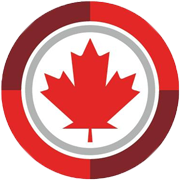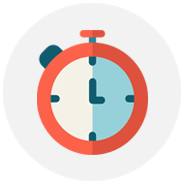Canada is one of the top countries in the world when it comes to providing world-class and affordable quality education to international students. To determine which program is best for you to study in Canada, you must first comprehend Canada's levels of study. The Canadian government invests heavily in higher education, ranking in the top three countries in terms of per capita spending for post-secondary education. There are numerous study levels and educational stages in Canada due to the separate educational systems being followed by provinces. The table below provides concise information about the various study levels and phases of education, followed by a detailed analysis.
| Degree/Diploma/Certificate programs | Study Duration (in years) | Explanation |
| Certificates & Diploma | 1 - 2 | Vocational and job-oriented technical programs |
| Associate degree | 2 | An undergraduate degree awarded by a college or institution after completing a two-year program of study in Canada |
| Bachelor (General) degree | 3 - 4 | An undergraduate degree, which typically lasts four years but varies by province. Provinces such as Quebec, provide three-year bachelor's degrees. |
| Bachelor (Honors) degree | 4 | This will necessitate obtaining a specific GPA or credits, as well as a degree or a specialized program |
| Postgraduate diploma | 1 - 2 | A specialized diploma program after the completion of the bachelor degree program |
| Master's degree (thesis-based) | 1 - 2 | This degree, often known as a research master's degree, necessitates the submission of a thesis for evaluation as well as the completion of a course |
| Master's degree (non-thesis) | 1 - 2 | A master's degree with no requirement of thesis submission |
| Doctorate (Ph.D.) programs | 4 - 7 | A qualification awarded after the successful submission and presentation of the allotted topic in front of a panel of faculty members |
| Post-Doctoral Programs | Unspecified | Highly specialized and research-oriented programs |
All Canadian children are required by law to attend school. Schooling for youngsters begins at the age of five or six and lasts until the child is sixteen. For Canadian youngsters, the school system begins with elementary school and progresses to high school (or secondary school). This system is divided into twelve grades/standards. When a student completes Grade 12, they obtain their high school diploma, which allows them to pursue post-secondary education (college and university). In Canada's educational system, there are both private and public schools. The Canadian government fully funds public schools, which teach government-mandated curricula to their students.
A Canadian student is only eligible to attend college or university after completing high school. If individuals desire to attend college or university in Canada, they must also show that they have a high school diploma.
Call us to know more about the study permit and Canadian permanent residence.
Post-secondary education is categorized under different heads as mentioned below:
A university is a post-secondary educational institution that can award degrees. Every institution provides Bachelor's Degree programs, and many additionally provide Master's and Ph.D. degrees.
A college is a post-secondary educational institution that, with a few exceptions, cannot confer degrees. Instead, they typically provide programs that end in certificates and/or diplomas. In general, college programs are more directly career-oriented than university programs. A college graduate may receive hands-on, practical training in a marketable skill, such as graphic design or culinary skills. Language training is a common course offered by colleges to help students enhance their abilities and employability. In addition, many institutions offer apprenticeships or training programs in skilled craft industries such as carpentry or welding.
Trade education is typically smaller programs provided through trade schools, colleges, or vocational institutions. A skilled trade is a specialized employment that usually entails some type of manual labor and necessitates on-the-job training as well as formal schooling. A skilled trade rarely necessitates a bachelor's degree. In addition, once a prospective tradesperson has completed the necessary training, they may enter into an apprenticeship. As an apprentice, the student works closely with an experienced tradesperson to improve their trade abilities in the desired fields.
A vocational school may provide educational programs at either the secondary or post-secondary levels. Vocational programs provide students with the technical skills needed to complete the requirements of a particular job. These programs educate students to enter the workforce immediately, either in skilled or low-skilled employment.
An associate degree is an undergraduate degree conferred by a college or university upon completion of a two-year course of study in Canada. British Columbia is the only jurisdiction in Canada that offers associate degrees. Here students can complete a two-year associate degree program that allows them to enter a bachelor's degree program in the third year of study. Associate degrees are not accessible outside of the province of British Columbia, however other jurisdictions may offer one and two-year certifications/diplomas that can sometimes be transferred into Bachelor's programs.
There are various levels of degrees within a university. Undergraduate programs include all the bachelor’s degrees, whereas an undergraduate program is a more general course of study in Canada that is focused primarily on a specific discipline. A Master's or Ph.D. level program, on the other hand, is considered graduate education in Canada. Graduate programs are often substantially smaller and highly specialized programs that place a strong emphasis on research.
The length of the program distinguishes a diploma from a certificate. Both of these levels of education prepare students for immediate admission into a specialized program. A certificate usually necessitates one year of full-time study in a college or vocational institute whereas a diploma necessitates two years of full-time study in Canada under a similar type of educational institution. Some schools also provide advanced diplomas, which require at least three years of full-time study.
This is a one-of-a-kind platform combining classroom teaching with real work experience, thus resulting in more structured and practical learning. This is a fantastic option for international students who do not want to be consumed fully by a lecture-based education. Under co-operative education, you must have a work visa as your job experience will constitute nearly 50% of the curriculum.
The highest number of admissions in Canada takes place in the September intake. Although most colleges and universities offer admissions for September and January intake, you will also be able to receive admissions in the summer intake i.e., in April/May.
Read more about the Canada PR
The foundation of Canadian learning is based on active involvement, research, and analysis through presentations, assignments, and lab exams. Classroom sessions involve the active participation of students with a mix of lectures, tutorials, and lab sessions. Lecture sessions may have a larger number of students in comparison to tutorials and classroom sessions, which are smaller in size to provide more space for ideation and in-depth study. Canadian colleges are known to deliver a holistic experience that will further help them to perform better in their academics, career, and life.
In comparison to the United Kingdom, Australia, and New Zealand, Canada has the lowest tuition fees for international students. On average, annual tuition fees can cost you between CAD 7,000 (INR 4.20 Lacs approx.) to CAD 29,000 (INR 17.40 Lacs approx.). However, this is merely a rough idea and actual costs may vary depending on the institution and program you are applying for, as well as your location and lifestyle.
Scholarships, grants, bursaries, tuition waivers, and other financial aids are available to Indian students applying to Canadian universities. It should be noted that the quantity and type of incentive vary between universities and programs.
Except for Quebec, every province in Canada has a twelve-grade system for elementary and secondary school. A student graduates from secondary school and receives a high school diploma after completing the twelfth standard. They will not be eligible for post-secondary courses until they have completed high school.
Quebec, on the other hand, has a different level of education between high school and undergraduate university programs. CEGEP (Collège d'enseignement général et professionnel) refers to this degree of education. CEGEPs are educational institutions that allow students to choose a specialized program that leads to a Diplôme d'études collégiales (DEC). In Quebec, primary and high education is considered only up to the eleventh standard. When a student completes eleventh Grade, they obtain their secondary school diploma.
There are two types of programs in the CEGEP system, pre-university and technical programs. Pre-university programs are two-year programs designed to prepare students to proceed on to university programs, whereas technical programs last three years and are designed to prepare graduates to enter the workforce immediately.
In Quebec, students can only begin an undergraduate university program after finishing a CEGEP program. It should be however noted that, for Quebec students, a bachelor's degree typically requires only three years of full-time study in Canada, whereas the rest of Canada requires four years of full-time study to obtain a Bachelor's.
It can be confusing and stressful to study as an international student in Canada. There are numerous schools and programs to choose from, and study permit applications are frequently denied due to failure to meet government requirements.
Fortunately, the Nationwide Visas Team is here to assist you in keeping things simple. We are the best immigration consultant in Delhi. Our International Student Program matches prospective students with one of our expert Educational Counsellors who will guide you through the entire process.
We will assist you in locating a program of study in Canada and to get the Canadian permanent residence while meeting the application and after-service requirements.
Simply fill out our free student assessment form and one of our Educational Counsellors will contact you to discuss your immigration options!




We at Nationwide Visas have assisted thousands of individuals to successfully Move to Canada From US with their families through the Express Entry Program. Our qualified and experienced Immigration Experts are equipped with the proficiency to accurately assess your case and advise the most suitable course of action for best serving your needs.
Nationwide Visas has accumulated a treasure of goodwill and exhaustive experience over the last 17+ years in this dynamic immigration industry and has constantly facilitated a wide range of aspiring immigrants to achieve their overseas goals.
We are among the top-most brands in the Immigration sector being a highly reliable immigration firm with an outstanding track record of several thousand triumphant PR Visa applications. The following major factors make us the Best Immigration Consultant for a Canada PR Visa:
Get a call within 55 seconds
Points Calculator
Get a call within 55 seconds